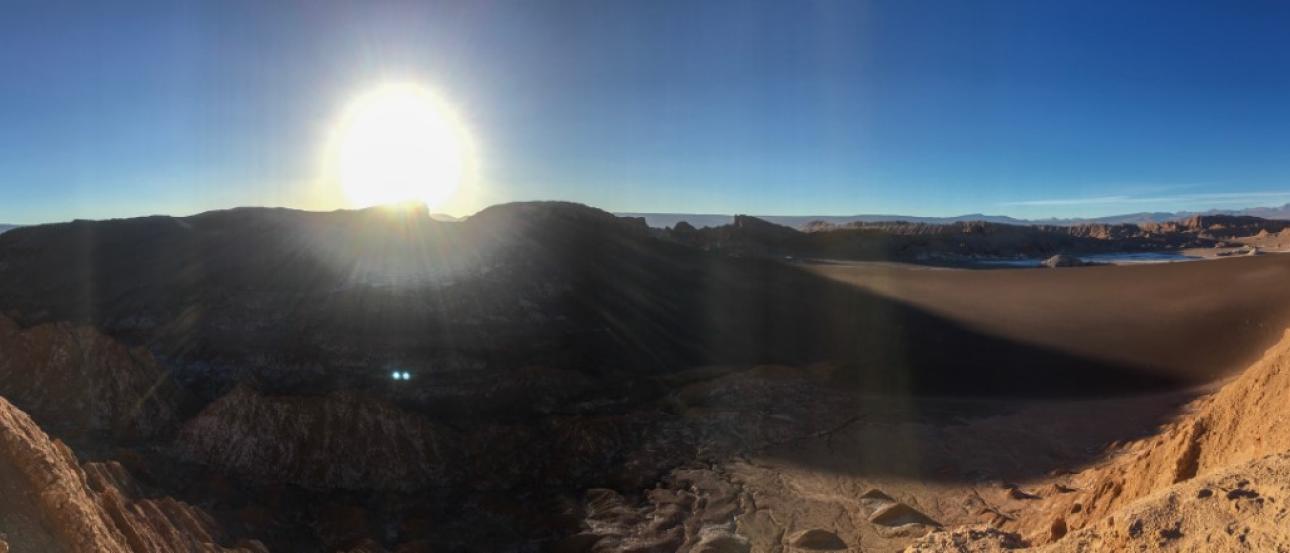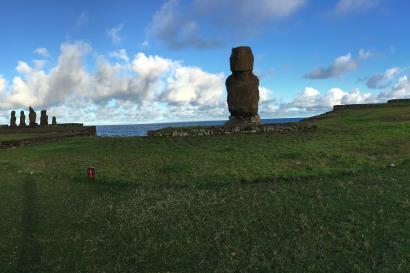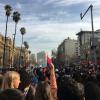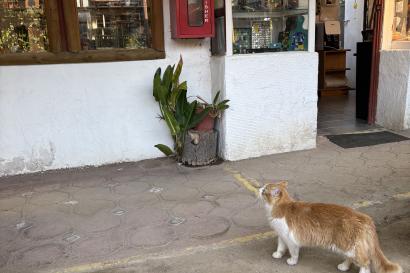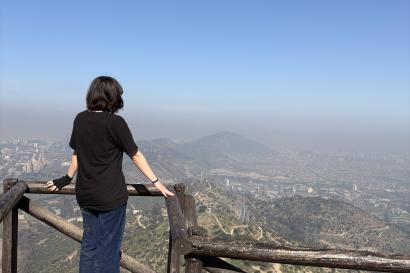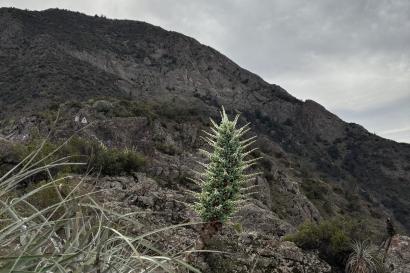I have a long and fraught history with religion. I was raised in the Church of Christ for the first 18 years of my life. Then when I was 19, I was introduced to paganism by my maternal grandmother and my aunt. I went to Thailand to learn about Buddhism and have taken university classes on Taoism, Confucianism, and Islam. I’ve claimed agnosticism and even publicly referred to myself as an atheist, but even then, the label didn’t feel right. My search for my religion has taken me all around the world. After 21 years of searching for myself, I finally found it in the south American desert.
When a group of other Americans from my summer internship program talked about going north to the Atacama Desert, I bought a plane ticket right away. It would be a two-hour flight to the northern town of Calama, then a 1.5-hour bus ride to the desert oasis town San Pedro de Atacama, a city so remote it isn’t even a part of Chile’s national electricity grid. Though it is the middle of winter in Chile right now, during the day the sun warmed the earth to a pleasant 75 degrees F. During the night, it got as cold as 15 degrees F. I arrived with the other ‘gringos’ (the endearing nickname for us North Americans) for the weekend and immediately set about looking for the famous Puritama hot springs, heated by the nearby volcano Llullaillaco, South America’s highest active volcano. I bought a packet of coja leaves to chew on for the altitude sickness rising in my stomach. After buying a ride out to the gorge, I descended into the springs and meditated with my friend Anneli. Without consciously knowing it, my spiritual journey had begun.
The next morning, I trekked outside the town and into Mars Valley, where NASA tested the Curiosity rover for their Mars expedition in 2017. This valley has the most similar conditions to Mars than anywhere else in the world (read: hostile), and looking out into the valley from the top of the gorge, I could imagine what it would feel like to be a pioneer on another planet. I wondered if this is how Adam and Eve would have felt leaving the garden of Eden. White sprinkled the red, jagged rocks twisting out of the amber dirt: not snow, but salt. Feelings I didn’t recognize started stirring within me; not melancholy or euphoria, but something else entirely. A local guide told me that the indigenous Atacameños who first inhabited the desert believed that their ancestors ascended to the mountains after death. Whenever one had to make an important decision or ask for guidance, they would ascend the mountain to commune with the spirits. Her story reminded me of the rituals I had done with my aunt and grandmother, and how those ceremonies made me feel closest to deity than any other spiritual experience I had undergone in my life.
In my grandmother and aunt’s religion, the moon holds importance. I felt pulled to the Valley de la Luna, Moon Valley, next. I hiked between hills of salt that felt deceptively hollow to the touch; most of the structures inside the valley are composed of more salt than clay. Salt is a huge motif in religion as a metaphor for preservation and cleanliness, so it felt fitting to experience a religious resurgence in a valley created by salt. I climbed to the top of a mountain and hiked the ridge. At the top, I wrote about who I felt l was and what I had lost. I watched the sunset over the sand dune and the moon rose early. I cried. My soul was expanding faster than I could recognize what was happening.
That night, I asked the other people from my group if they wanted to partake in a pagan ritual with me. A couple of them said yes. I put on my sacred moonstone necklace, gifted to me by my aunt shortly before my initiation into her group. Under the light of the moon and some of the brightest stars I’ve ever seen, I burned the rest of my coja leaves as incense and led a ritual I’ve only ever had a minor role in before. Lacking fine wine, we poured beer onto the sand in offering. The details of the ritual are confidential to participants, but I can say that we ended it with howling at the moon. When the coyotes and desert dogs joined in, I left my body and flew into the stars. I cried again. Something unnamable had shifted inside of me. I don’t give my religion and beliefs a name, but it’s accurately enough lumped into the ‘pagan’ category.
Sunday evening, I left the desert a different person than who had arrived three days prior. I’m still processing it all, but the desert gave me my religion. I saw who I was under the stars.

Rebecca Carey
Rebecca Carey has been an avid literature and science fiction fan since reading her father’s copy of Ron Hubbard’s “Battlefield Earth” as a child. She has been writing professionally for two years and has published prose, poetry, and short fiction in the University of Iowa’s undergraduate literary reviews ‘InkLit,’ ‘Witness,’ and ‘Peripheral’ in 2018 and 2019, and has published poetry translations in the University of Iowa’s undergraduate translation Journal ‘Boundless’ in 2019. She is a Creative Writing and Translation student at the Univerisity of Iowa hoping to pursue a Master’s degree in translation studies after graduation. When she isn’t buried in a book, she’s usually somewhere in between the realm of overthinking, daydreaming, and wishing she was born 500 years in the future so she could have lived on Mars. Favorite novels of hers include Trenton Lee Stwart’s “The Mysterious Benedict Society,” Jeff Vandermeer’s “Annihilation,” and William Burrough’s “Naked Lunch.” Some of her favorite Chilean authors are Lina Meruane, Roberto Balaño, and Pablo Neruda.
